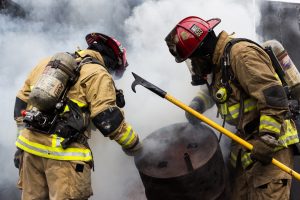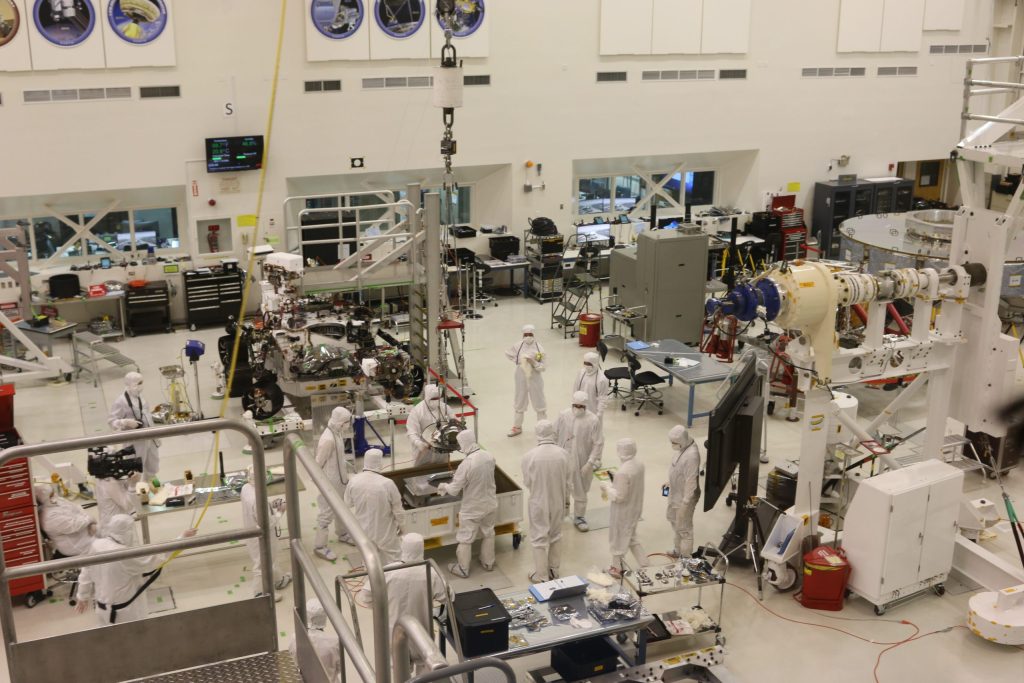Searching for an ideal job that promises a breath of fresh air in your career? It’s worth noting that not every workplace lives up to this metaphor literally.
In certain jobs, many people must brave the harsh air conditions of offices, sites, factories, and other workplace settings. Learn more about these nine jobs with the worst air quality and actionable steps you can take to protect yourself from health perils.
1. Construction
In addition to noise pollution, construction workers putting in 40 hours a week are constantly exposed to dust in renovations and demolitions. Hours of sawing, drilling, and exposure to different materials, such as wood, plaster, and concrete, can lead to a higher risk of asbestosis, which can scar and stiffen the lungs.
Contaminated and volatile matters spreading around the site and the surrounding neighborhood can also increase the risk of other occupational lung diseases, such as mesothelioma.
2. Manufacturing
Factory workers spend long hours working on heavy machinery, producing dust and chemicals that can be harmful to the lungs. For instance, textile workers can inhale dust created by cotton, flax, and hemp, increasing the risk of a condition known as brown lung disease.
In food manufacturing, workers are exposed to diacetyl, a flavoring agent that can heighten the risk of severe respiratory impairment and obliterative bronchiolitis. Even if some flavoring chemicals are safe to eat, they can pose risks for workers who breathe workplace air contaminated with such substances.
3. Automotive Repair
Auto repair shop employees deal with solvents and compounds that may harm the lungs in the long run. Garage facilities release toxic fumes called volatile organic compounds (VOCs), which can damage the kidneys, liver, lungs, and central nervous system.
Garages that emit vehicle exhaust fumes can pose a danger to lung health without proper air ventilation. A high-performance rollup door with thin strips of curved or flat interlocking steel slats can help filter out potential pollutants and promote better air quality for employees.
4. Healthcare

Healthcare workers can experience asthmatic reactions to a powder residue found in latex gloves. Since wearing protective gear is vital in the hospital or clinic setting, it’s challenging to lower exposure to this chemical unless the management switches to latex-free alternatives.
5. Mining
Mining professionals commonly work in settings that need proper light and ventilation. Breathing in coal dust can cause lung scarring and inflammation that may lead to black lung disease. Symptoms include shortness of breath and permanent lung damage.
Studies have also found that modern coal miners are at increased risk of death from lung cancer and chronic obstructive pulmonary disease (COPD).
6. Housekeeping
Cleaning may not appear hazardous at first glance, but look closer at the materials you use to understand why housekeeping made it to this list. Keeping your house tidy helps protect your home, but the supplies you use may cause harm to your health.
Supplies used to clean floors, windows, and furniture can trigger and develop asthma and affect the lungs. Even products advertised as “organic,” “green” or “natural” may still cause health problems. Remember to never mix bleach or any bleach-containing product with a product containing ammonia. Doing so can lead to severe breathing problems.
7. Bartending
Imagine what bartenders go through every night — mixing drinks while inhaling smoke indoors. Many states have banned smoking in bars and restaurants, which has made significant progress in this industry. If you work as a bartender and want to avoid the effects of second-hand smoke, a good ventilation system can help improve air quality.
8. Firefighting

Firefighters are a testament to the fact that not all heroes wear capes. However, these living heroes are at higher risk of lung health problems. Braving burning establishments means contacting contaminated air from burning plastic, metals, fabric, and other materials.
Although the breathing equipment does an excellent job protecting firefighters, exposure to toxic materials and asbestos can still harm them even when the fire is out.
9. Agriculture
Farmers and other agricultural workers are at risk for lung issues depending on the equipment and materials they use. For instance, high exposure to fungus spores, animal and plant proteins, bacteria, and other chemicals can increase the risk of hypersensitivity pneumonitis.
What Can You Do to Protect Yourself?
If you work in any of these industries, you can follow these tips to protect yourself from lung problems and other harmful effects of bad air quality:
- Ensure you are wearing appropriate protective equipment whenever indicated. Talk to your employer if you think your current gear needs upgrading.
- Participate in safety training about minimizing exposure to harmful substances in the workplace.
- Don’t smoke and vape whenever possible. Keep away from high-smoking areas to avoid second-hand smoke.
- Visit your healthcare provider and inquire about vaccines against infectious respiratory illnesses.
- Talk to management about investing in air quality devices to maintain optimal indoor air quality.
Breathe Cleaner Air With Preventive Measures
If you’re working in one of the industries, it’s high time to take preventive measures. In the hustle and bustle of your demanding profession, don’t forget to take a breather and prioritize your health.

